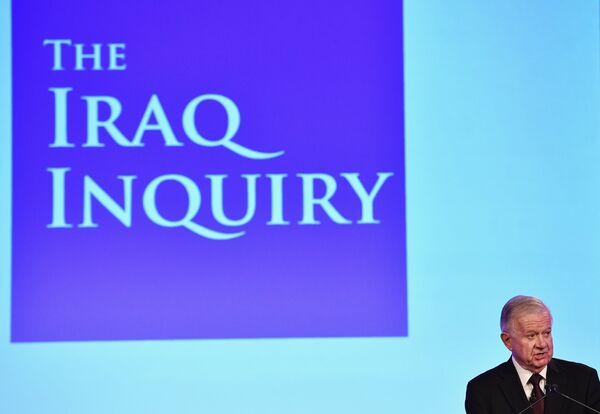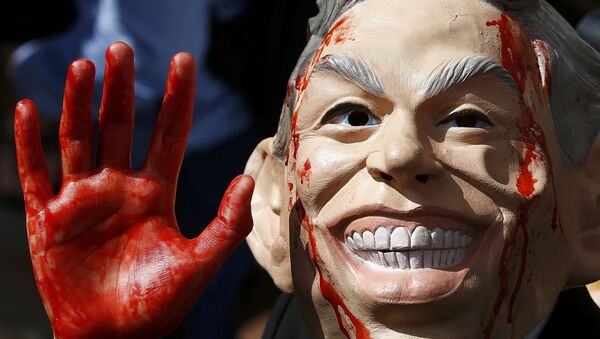The inquiry into the Iraq invasion, headed by Sir John Chilcot, found that policy on Iraq was based on flawed intelligence and assessments and that the legal case for going to war was "far from satisfactory." Chilcot said Blair's government had not exhausted peaceful means of dealing with Iraq's alleged weapons of mass destruction — clearly inferring Blair had jumped prematurely into war.

Blair — along with George W. Bush had failed to agree a United Nations resolution that gave the US and UK the go-ahead to invade. Blair sought the advice of the UK Attorney General, Peter Goldsmith.
"We have, however, concluded that the circumstances in which it was decided that there was a legal basis for UK military action were far from satisfactory," Sir John said.
"We have concluded that the UK chose to join the invasion of Iraq before the peaceful options for disarmament had been exhausted. Military action at that time was not a last resort."
Chilcot also blamed flawed intelligence for the decision to go to war.
"The Joint Intelligence Committee should have made clear to Mr Blair that the assessed intelligence had not established 'beyond doubt' either that Iraq had continued to produce chemical and biological weapons or that efforts to develop nuclear weapons continued."
"It is now clear that policy on Iraq was made on the basis of flawed intelligence and assessments. They were not challenged, and they should have been."
He said Blair's cabinet had over-egged Hussein's military capabilities.
"The judgements about the severity of the threat posed by Iraq's weapons of mass destruction — WMD — were presented with a certainty that was not justified. Despite explicit warnings, the consequences of the invasion were underestimated. The planning and preparations for Iraq after Saddam Hussein were wholly inadequate," said Sir John.
Chilcot said Blair had failed to ensure that military planning for the invasion — in which 179 UK soldiers died — had been inadequate. Chilcot said:
"[Blair] did not establish clear ministerial oversight of UK planning and preparation. He did not ensure that there was a flexible, realistic and fully resourced plan that integrated UK military and civilian contributions, and addressed the known risks. The failures in the planning and preparations continued to have an effect after the invasion."
Dodgy Dossier
The run-up to the war saw the publication of two dossiers by Blair's Government, which were used to justify the case for war, including claims that Hussein had weapons of mass destruction capable of hitting UK targets within 45 minutes of an order being given.
However, a previous report — the Butler Review, on which Sir John Chilcot sat — found that: "The Joint Intelligence Committee should not have included the '45 minute' report in its assessment and in the Government's dossier without stating what it was believed to refer to. The fact that the reference in the classified assessment was repeated in the dossier later led to suspicions that it had been included because of its eye-catching character."
It found that the intelligence reports used in the dossiers was not strong. The report stated: "more weight was placed on the intelligence than it could bear."



